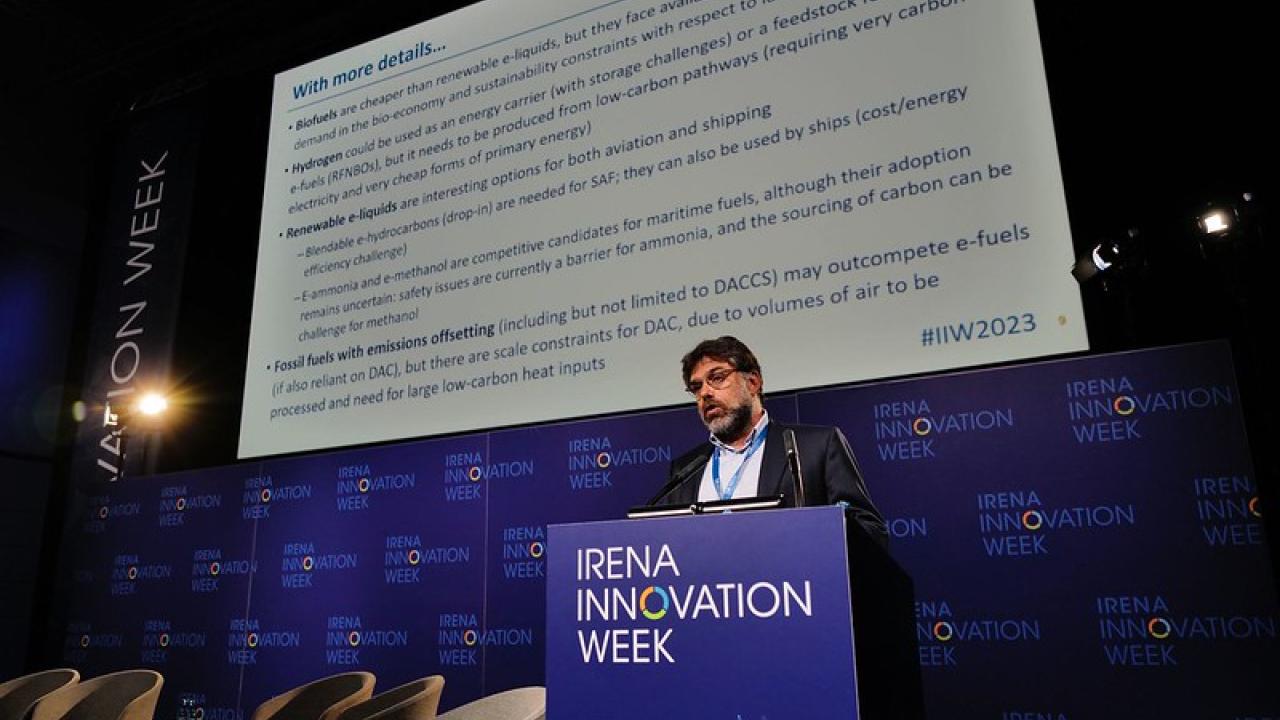
IRENA Innovation Week Seeks Sustainable Fuel Solutions
Pierpaolo Cazzola, Director of the UC Davis-ITS European Transport and Energy Research Center (ETERC), co-led a session on decarbonizing the shipping and aviation sector.
In September 2023, the International Renewable Energy Agency (IRENA) held its Innovation Week event in Bonn, Germany. Leaders, industry representatives, academics, and policy makers convened to discuss how to support and accelerate the global energy transition in Europe. Three themes were decarbonization of power systems, integration of variable renewable energy, and decarbonizing end-use sectors.
Pierpaolo Cazzola, Director of the UC Davis-ITS European Transport and Energy Research Center (ETERC), co-led a session on decarbonizing the shipping and aviation sector. Remarks reflected recent research for the European Parliament Committee on Transport and Tourism (TRAN). This report provided a comprehensive assessment of the potential of biofuels, renewable fuels of non-biological origin including renewable hydrogen and other e-fuels, recycled carbon fuels, and fossil and nuclear-based hydrogen for a variety of end-uses. The role of direct electrification was also considered.
Some key findings are:
- Reducing fuel consumption and increasing efficiency will be necessary to maintain a sustainable supply of liquid low- and no-carbon fuel in the long-term, given anticipated resource constraints
- Direct electrification will make a major contribution to energy efficiency gains in light- and medium-duty road transport sectors
- Liquid and gaseous sustainable fuels should be primarily dedicated to modes that cannot be easily electrified such as aviation, shipping, and heavy-duty road transport
- E-ammonia and e-methanol are cheaper than other e-liquids and are good candidates for maritime
- Direct electrification from renewable sources is considered as a key option to decarbonize road transport and short-haul shipping
- Significant and timely investments in renewable electricity generation, infrastructure, and vehicle development are needed
